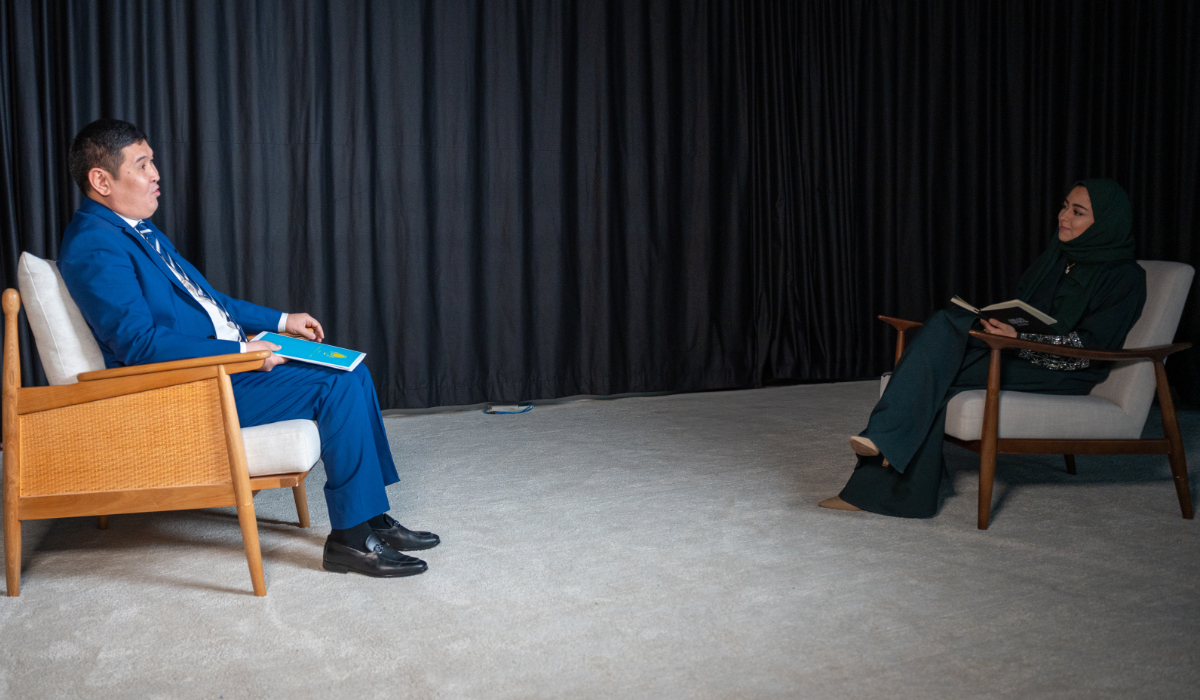RIYADH: Pakistani native and chairman of the National Semi-Conductor Hub, Naveed Sherwani, wants to inspire future Saudi generations to join in making the Kingdom a global semiconductor leader.
“I believe our mission is not to establish 50 companies, our mission is to inspire the Saudi nation to get involved in making Saudi Arabia a hub of semi-conductors; the only way for that to happen is for all of us to work together and ensure the young generation get involved in building semi-conductors,” Sherwani told Arab News.
“The semiconductor industry is a crucial industry that cannot be run by foreigners, it has to be run by Saudis … we will have to get Saudi youth and Saudi engineers to get interested,” he said.
In June this year, King Abdulaziz City for Science and Technology hosted the third Future of Semiconductors Forum in Riyadh, establishing a roadmap for creating thousands of high-value training and job opportunities for Saudi innovators in the semiconductor industry.
As a part of the forum, the National Semiconductor Hub was introduced, which aims to develop and localize the electronic chip industry in the Kingdom. As its chairman, Sherwani aims to support Saudi youth in continuing to grow the semiconductor sector.
“Semiconductors are important to the future of the Kingdom,” he said. “When you are working on such a crucial project it has to be done by the citizens.”
He underlined that this was the reason why investments must be made to ensure that Saudi universities produced high-quality electric engineers.
“We create this enthusiasm by giving them vision … that this is another great career for them,” he said.
Sherwani said that everyone had a role to play in the semiconductor sector: “We will all have to join hands together and try to inspire our generation to lead this (semiconductor sector).”
Sherwani, whose father worked in Saudi Arabia for about 16 years, noted his early memories of the Kingdom, adding that he first came to Saudi Arabia in the early 2000’s.
His father was a meteorologist based in Jeddah and worked on the Kingdom’s environmental policy in the 1980’s and 1990’s.
In June 2023, Sherwani attended the Arab-China investment conference. “That was the first time that I fully understood the focus of the Kingdom on technology … and I said this is the right time, we need to focus and see what we can do in semi-conductors,” he said.
Discussing the technological change that he noticed in Saudi Arabia, Sherwani said: “This is kind of shift I have never seen anywhere in the world.”
He added that Saudi Arabia’s strategic location in the region made it “the growth driver of the region.”
“This region is going to grow,” he said. “The next level of growth in the MENA region is going to be technology and digitization … the base of digitalization is chip design and semi-conductors.”
Investing heavily in technology was the way forward, he said: “Our intent in setting up the National Semi-Conductor Hub in Saudi Arabia is to establish the design ecosystem for chip design here. The goal of the National Semi-Conductor Hub over the next five to six years as part of Vision 2030 is to establish 50 semiconductor design companies in the Kingdom.”
He said that chips were used in all spaces and aspects of daily life, from hospitals to schools to communication, smartphones and cars.
Sherwani said that because the Kingdom was expanding into other areas, diversification in semi-conductors was needed across sectors. “If you want to become a nation of making electric cars then you have to make semi-conductors,” he said.
Sherwani said that while some might claim that the Kingdom could easily outsource and import semi-conductors from elsewhere: “I think that dependence is not healthy … what we should do is build our own capability.
“I think that the best country to do that in the region is Saudi Arabia,” he said.



























